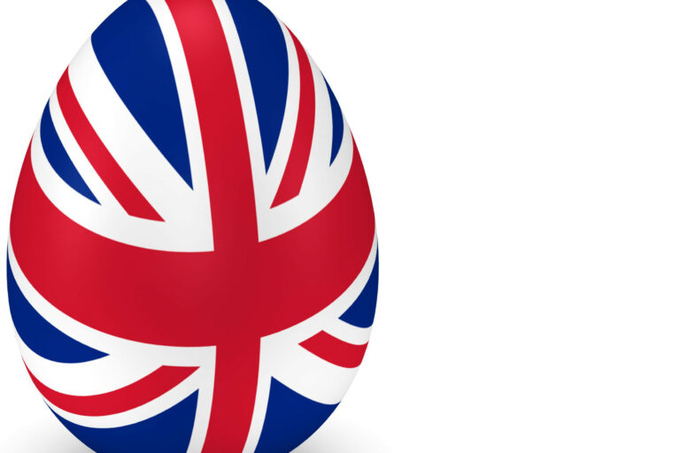December 10, 2025 | 16:04 GMT +7
December 10, 2025 | 16:04 GMT +7
Hotline: 0913.378.918
December 10, 2025 | 16:04 GMT +7
Hotline: 0913.378.918

Prospects for the UK egg sector look strong. Photo: Canva.
All major retailers except for Asda have committed to the voluntary initiative of reduced stocking densities from the Red Tractor standard of 38kg/sqm to 30kg. For the integrated supply chain, this is a 20% reduction in chick placings.
Authors Victoria Moxham and Edward Calcott said this brings good enrichment and welfare benefits for the chickens which can be marketed to consumers. But it does not seem to be affecting the carbon footprint per kg of meat produced due to the birds achieving better growth rates, and a reduction of rejects and mortality, meaning there are more saleable birds as a percentage of those placed being processed.
To meet UK broiler chicken demand with domestic production, more floor area for growing chickens is required, but this is not happening at present for several reasons. “Issues with planning permission and environmental permitting are making the process difficult and time-consuming, most notably in Herefordshire and Powys with phosphate levels in the River Wye from poultry now a significant cause for public concern.”
The authors say the cost of investing in new broiler facilities has risen dramatically over the past 5 years and there is no longer any benefit through installing Renewable Heat Incentive payment-driven heat sources, which has masked the true income from growing chickens alone.
Broiler producers must now rely solely on chicken sales to support any future investment, assuming that imports are not used to plug the supply/demand gap, but more to balance the carcass. When combined with higher interest rates, investment in broiler sheds and negotiations of contracts need to be carefully considered, they say.
UK egg sector
Following the outlawing in 2012 of battery cage egg production by August 2016, Lidl, Aldi, Tesco, Morrisons, Asda and Iceland had set a 2025 deadline to allow for a comprehensive transition to cage-free egg production. Waitrose, Marks and Spencer, Co-op and Sainsbury’s had already established their own standards.
As the 2025 deadline approaches, German discounter Lidl has announced a £1 billion investment into free-range egg production following a 34% increase in their free-range egg sales over the past year. The investment is to be made over 5 years, supporting existing farmers, while also encouraging and facilitating new producers to enter the sector. Lidl has also established its own producer group, offering long-term cost of production contracts, guaranteed minimum volumes, funding for new sheds and assistance in securing bank financing.
In terms of consumption and prices, there were 249 million dozen eggs produced for human consumption in the second quarter of 2024, which is up 6.4% from the same period last year. Farmgate egg prices have also risen year-on-year with an average price of 144 pence (€1.74) per dozen (8.6% up on Q2 figures in 2023).
The volume of free-range eggs sold has also grown by just under 8% in the last 12 months, but colony production still accounts for 22% in the second quarter.
Moxham and Calcott question what will happen to this fifth of the British market: “Despite being 8 years on from the initial commitment to ditch colony egg production, there is still significant uncertainty regarding how we are to meet this commitment by next year. Last year, the British Egg Industry Council predicted that the national flock size will double to 5.5 million, a further 2 million will reside within organic systems and the free-range flock will remain static around 28 million birds. Thus, an anticipated 4.5 million birds will reportedly remain in enriched colony systems, which is not in keeping with the commitment by multiple retailers.”
They say much depends on Lidl’s investment and there is confusion as to whether the start or the end of the year is the deadline for colony birds to be phased out. There is also a lack of clarification of whether processed eggs are part of this commitment.
More generally, prospects for the egg sector look strong with supply and demand in fine balance and prices at levels not seen for years, enabling producers to recover past losses, build a cash buffer, accelerate debt repayment and invest in new infrastructure.
(Poultryworld)

(VAN) Initiative launched in Cairo honors villages that are helping drive agrifood systems transformation.

(VAN) The European Union agreed Wednesday to phase out Russian natural gas imports by late 2027 as part of an effort to end the bloc’s decade-long dependency on Russian energy.

(VAN) Indonesia plans a US$1.2 billion investment in feed mills to boost poultry feed production.

(VAN) Japan's average retail rice price hit a new record high for the first time in three weeks, according to agriculture ministry data.

(VAN) The use of antibiotics in treating livestock in the UK has fallen, according to a new report released by the government’s Veterinary Medicines Directorate.

(VAN) Newly designated initiatives in Australia, Canada and South Africa represent science-based and inclusive examples of ecosystem restoration.

(VAN) Rice-based food has been selected as Japan's 'Dish of the Year' for 2025, reflecting public interest in the stable supply of the country's staple food amid a recent rice shortage.